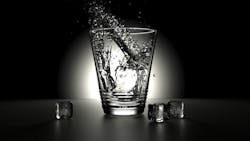Chemical Not EPA Approved in Drinking Water for 10 Years
In Denmark, S.C., some residents have been suspicious of the water coming from their taps. According to WTVR-TV, they have been collecting samples and using bottled or spring water. Even though the local and state government have told them it was safe.
However, through a Freedom of Information Act request and a one-year investigation, CNN has found information that may cast doubts.
According to CNN, the state government was adding a substance called HaloSan to one of the city’s four wells. They were trying to regulate naturally occurring iron bacteria that leave stains, or rust-like deposits, in the water. The substance was not approved by the U.S. Environmental Protection Agency to disinfect drinking water, according to CNN.
The state of South Carolina did approve its use and it was used for 10 years.
The EPA and the state have confirmed there is now an open investigation, according to CNN. Neither of them would comment on the target of the probe or scope.
A group of about 40 residents believe the water is to blame for illnesses they say they are suffering from, according to WTVR-TV.
HaloSan is typically used as a disinfectant in pools and spas. However, experts contracted by CNN said they could not find another instance where it was added to a drinking water system.
According to WTVR-TV, a spokesman for South Carolina’s Department of Health and Environmental Control believe HaloSan was EPA-approved for drinking was based on the way it was “advertised.”
“The Berry Systems HaloSan treatment unit had been advertised as an effective treatment in the control of iron bacteria and was certified … ” said Tommy Crosby, director of media relations for the South Carolina Department of Health and Environmental Control to CNN.
The makers of the the substance, Berry Systems, did not respond to calls or emails by CNN requesting comment.
“It was our thinking that it was an approved chemical to be used,” said Gerald Wright, mayor of Denmark, to CNN. “We rely totally on DHEC because they have the responsibility and expertise to test, monitor and advise.”
According to an EPA spokesperson, HaloSan is not approved to be used to treat drinking water. According to WTVR-TV, an EPA risk assessment from 2007 shows that the chemical can be a “significant eye and skin irritant.”
